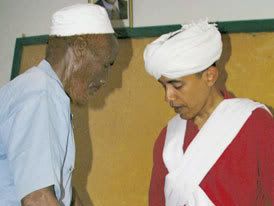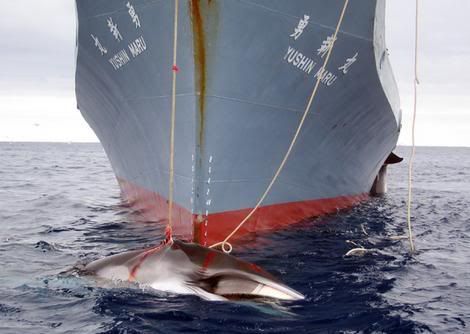From New York Times
By JIM RUTENBERG, MARILYN W. THOMPSON, DAVID D. KIRKPATRICK and STEPHEN LABATON
February 21, 2008by
WASHINGTON — Early in Senator John McCain’s first run for the White House eight years ago, waves of anxiety swept through his small circle of advisers
 Lobbyist Vicki Iseman
Lobbyist Vicki Iseman
A female lobbyist had been turning up with him at fund-raisers, visiting his offices and accompanying him on a client’s corporate jet. Convinced the relationship had become romantic, some of his top advisers intervened to protect the candidate from himself — instructing staff members to block the woman’s access, privately warning her away and repeatedly confronting him, several people involved in the campaign said on the condition of anonymity.
When news organizations reported that Mr. McCain had written letters to government regulators on behalf of the lobbyist’s client, the former campaign associates said, some aides feared for a time that attention would fall on her involvement.
Mr. McCain, 71, and the lobbyist, Vicki Iseman, 40, both say they never had a romantic relationship. But to his advisers, even the appearance of a close bond with a lobbyist whose clients often had business before the Senate committee Mr. McCain led threatened the story of redemption and rectitude that defined his political identity.
It had been just a decade since an official favor for a friend with regulatory problems had nearly ended Mr. McCain’s political career by ensnaring him in the Keating Five scandal. In the years that followed, he reinvented himself as the scourge of special interests, a crusader for stricter ethics and campaign finance rules, a man of honor chastened by a brush with shame.
But the concerns about Mr. McCain’s relationship with Ms. Iseman underscored an enduring paradox of his post-Keating career. Even as he has vowed to hold himself to the highest ethical standards, his confidence in his own integrity has sometimes seemed to blind him to potentially embarrassing conflicts of interest.
Mr. McCain promised, for example, never to fly directly from Washington to Phoenix, his hometown, to avoid the impression of self-interest because he sponsored a law that opened the route nearly a decade ago. But like other lawmakers, he often flew on the corporate jets of business executives seeking his support, including the media moguls Rupert Murdoch, Michael R. Bloomberg and Lowell W. Paxson, Ms. Iseman’s client. (Last year he voted to end the practice.)
Mr. McCain helped found a nonprofit group to promote his personal battle for tighter campaign finance rules. But he later resigned as its chairman after news reports disclosed that the group was tapping the same kinds of unlimited corporate contributions he opposed, including those from companies seeking his favor. He has criticized the cozy ties between lawmakers and lobbyists, but is relying on corporate lobbyists to donate their time running his presidential race and recently hired a lobbyist to run his Senate office.
“He is essentially an honorable person,” said William P. Cheshire, a friend of Mr. McCain who as editorial page editor of The Arizona Republic defended him during the Keating Five scandal. “But he can be imprudent.”
Mr. Cheshire added, “That imprudence or recklessness may be part of why he was not more astute about the risks he was running with this shady operator,” Charles Keating, whose ties to Mr. McCain and four other lawmakers tainted their reputations in the savings and loan debacle.
During his current campaign for the Republican presidential nomination, Mr. McCain has played down his attacks on the corrupting power of money in politics, aware that the stricter regulations he championed are unpopular in his party. When the Senate overhauled lobbying and ethics rules last year, Mr. McCain stayed in the background.
With his nomination this year all but certain, though, he is reminding voters again of his record of reform. His campaign has already begun comparing his credentials with those of Senator Barack Obama, a Democratic contender who has made lobbying and ethics rules a centerpiece of his own pitch to voters.
“I would very much like to think that I have never been a man whose favor can be bought,” Mr. McCain wrote about his Keating experience in his 2002 memoir, “Worth the Fighting For.” “From my earliest youth, I would have considered such a reputation to be the most shameful ignominy imaginable. Yet that is exactly how millions of Americans viewed me for a time, a time that I will forever consider one of the worst experiences of my life.”
A drive to expunge the stain on his reputation in time turned into a zeal to cleanse Washington as well. The episode taught him that “questions of honor are raised as much by appearances as by reality in politics,” he wrote, “and because they incite public distrust they need to be addressed no less directly than we would address evidence of expressly illegal corruption.”
A Formative Scandal
Mr. McCain started his career like many other aspiring politicians, eagerly courting the wealthy and powerful. A Vietnam war hero and Senate liaison for the Navy, he arrived in Arizona in 1980 after his second marriage, to Cindy Hensley, the heiress to a beer fortune there. He quickly started looking for a Congressional district where he could run.
Mr. Keating, a Phoenix financier and real estate developer, became an early sponsor and, soon, a friend. He was a man of great confidence and daring, Mr. McCain recalled in his memoir. “People like that appeal to me,” he continued. “I have sometimes forgotten that wisdom and a strong sense of public responsibility are much more admirable qualities.”
During Mr. McCain’s four years in the House, Mr. Keating, his family and his business associates contributed heavily to his political campaigns. The banker gave Mr. McCain free rides on his private jet, a violation of Congressional ethics rules (he later said it was an oversight and paid for the trips). They vacationed together in the Bahamas. And in 1986, the year Mr. McCain was elected to the Senate, his wife joined Mr. Keating in investing in an Arizona shopping mall.
Mr. Keating had taken over the Lincoln Savings and Loan Association and used its federally insured deposits to gamble on risky real estate and other investments. He pressed Mr. McCain and other lawmakers to help hold back federal banking regulators.
For years, Mr. McCain complied. At Mr. Keating’s request, he wrote several letters to regulators, introduced legislation and helped secure the nomination of a Keating associate to a banking regulatory board.
By early 1987, though, the thrift was careering toward disaster. Mr. McCain agreed to join several senators, eventually known as the Keating Five, for two private meetings with regulators to urge them to ease up. “Why didn’t I fully grasp the unusual appearance of such a meeting?” Mr. McCain later lamented in his memoir.
When Lincoln went bankrupt in 1989 — one of the biggest collapses of the savings and loan crisis, costing taxpayers $3.4 billion — the Keating Five became infamous. The scandal sent Mr. Keating to prison and ended the careers of three senators, who were censured in 1991 for intervening. Mr. McCain, who had been a less aggressive advocate for Mr. Keating than the others, was reprimanded only for “poor judgment” and was re-elected the next year.
Some people involved think Mr. McCain got off too lightly. William Black, one of the banking regulators the senator met with, argued that Mrs. McCain’s investment with Mr. Keating created an obvious conflict of interest for her husband. (Mr. McCain had said a prenuptial agreement divided the couple’s assets.) He should not be able to “put this behind him,” Mr. Black said. “It sullied his integrity.”
Mr. McCain has since described the episode as a unique humiliation. “If I do not repress the memory, its recollection still provokes a vague but real feeling that I had lost something very important,” he wrote in his memoir. “I still wince thinking about it.”
A New Chosen Cause
After the Republican takeover of the Senate in 1994, Mr. McCain decided to try to put some of the lessons he had learned into law. He started by attacking earmarks, the pet projects that individual lawmakers could insert anonymously into the fine print of giant spending bills, a recipe for corruption. But he quickly moved on to other targets, most notably political fund-raising.
Mr. McCain earned the lasting animosity of many conservatives, who argue that his push for fund-raising restrictions trampled free speech, and of many of his Senate colleagues, who bristled that he was preaching to them so soon after his own repentance. In debates, his party’s leaders challenged him to name a single senator he considered corrupt (he refused).
“We used to joke that each of us was the only one eating alone in our caucus,” said Senator Russ Feingold, Democrat of Wisconsin, who became Mr. McCain’s partner on campaign finance efforts.
Mr. McCain appeared motivated less by the usual ideas about good governance than by a more visceral disapproval of the gifts, meals and money that influence seekers shower on lawmakers, Mr. Feingold said. “It had to do with his sense of honor,” he said. “He saw this stuff as cheating.”
Mr. McCain made loosening the grip of special interests the central cause of his 2000 presidential campaign, inviting scrutiny of his own ethics. His Republican rival, George W. Bush, accused him of “double talk” for soliciting campaign contributions from companies with interests that came before the powerful Senate commerce committee, of which Mr. McCain was chairman. Mr. Bush’s allies called Mr. McCain “sanctimonious.”
At one point, his campaign invited scores of lobbyists to a fund-raiser at the Willard Hotel in Washington. While Bush supporters stood mocking outside, the McCain team tried to defend his integrity by handing the lobbyists buttons reading “McCain voted against my bill.” Mr. McCain himself skipped the event, an act he later called “cowardly.”
By 2002, he had succeeded in passing the McCain-Feingold Act, which transformed American politics by banning “soft money,” the unlimited donations from corporations, unions and the rich that were funneled through the two political parties to get around previous laws.
One of his efforts, though, seemed self-contradictory. In 2001, he helped found the nonprofit Reform Institute to promote his cause and, in the process, his career. It collected hundreds of thousands of dollars in unlimited donations from companies that lobbied the Senate commerce committee. Mr. McCain initially said he saw no problems with the financing, but he severed his ties to the institute in 2005, complaining of “bad publicity” after news reports of the arrangement.
Like other presidential candidates, he has relied on lobbyists to run his campaigns. Since a cash crunch last summer, several of them — including his campaign manager, Rick Davis, who represented companies before Mr. McCain’s Senate panel — have been working without pay, a gift that could be worth tens of thousands of dollars.
In recent weeks, Mr. McCain has hired another lobbyist, Mark Buse, to run his Senate office. In his case, it was a round trip through the revolving door: Mr. Buse had directed Mr. McCain’s committee staff for seven years before leaving in 2001 to lobby for telecommunications companies.
Mr. McCain’s friends dismiss questions about his ties to lobbyists, arguing that he has too much integrity to let such personal connections influence him.
“Unless he gives you special treatment or takes legislative action against his own views, I don’t think his personal and social relationships matter,” said Charles Black, a friend and campaign adviser who has previously lobbied the senator for aviation, broadcasting and tobacco concerns.
Concerns in a Campaign
Mr. McCain’s confidence in his ability to distinguish personal friendships from compromising connections was at the center of questions advisers raised about Ms. Iseman.
The lobbyist, a partner at the firm Alcalde & Fay, represented telecommunications companies for whom Mr. McCain’s commerce committee was pivotal. Her clients contributed tens of thousands of dollars to his campaigns.
Mr. Black said Mr. McCain and Ms. Iseman were friends and nothing more. But in 1999 she began showing up so frequently in his offices and at campaign events that staff members took notice. One recalled asking, “Why is she always around?”
That February, Mr. McCain and Ms. Iseman attended a small fund-raising dinner with several clients at the Miami-area home of a cruise-line executive and then flew back to Washington along with a campaign aide on the corporate jet of one of her clients, Paxson Communications. By then, according to two former McCain associates, some of the senator’s advisers had grown so concerned that the relationship had become romantic that they took steps to intervene.
A former campaign adviser described being instructed to keep Ms. Iseman away from the senator at public events, while a Senate aide recalled plans to limit Ms. Iseman’s access to his offices.
In interviews, the two former associates said they joined in a series of confrontations with Mr. McCain, warning him that he was risking his campaign and career. Both said Mr. McCain acknowledged behaving inappropriately and pledged to keep his distance from Ms. Iseman. The two associates, who said they had become disillusioned with the senator, spoke independently of each other and provided details that were corroborated by others.
Separately, a top McCain aide met with Ms. Iseman at Union Station in Washington to ask her to stay away from the senator. John Weaver, a former top strategist and now an informal campaign adviser, said in an e-mail message that he arranged the meeting after “a discussion among the campaign leadership” about her.
“Our political messaging during that time period centered around taking on the special interests and placing the nation’s interests before either personal or special interest,” Mr. Weaver continued. “Ms. Iseman’s involvement in the campaign, it was felt by us, could undermine that effort.”
Mr. Weaver added that the brief conversation was only about “her conduct and what she allegedly had told people, which made its way back to us.” He declined to elaborate.
It is not clear what effect the warnings had; the associates said their concerns receded in the heat of the campaign.
Ms. Iseman acknowledged meeting with Mr. Weaver, but disputed his account.
“I never discussed with him alleged things I had ‘told people,’ that had made their way ‘back to’ him,” she wrote in an e-mail message. She said she never received special treatment from Mr. McCain’s office.
Mr. McCain said that the relationship was not romantic and that he never showed favoritism to Ms. Iseman or her clients. “I have never betrayed the public trust by doing anything like that,” he said. He made the statements in a call to Bill Keller, the executive editor of The New York Times, to complain about the paper’s inquiries.
The senator declined repeated interview requests, beginning in December. He also would not comment about the assertions that he had been confronted about Ms. Iseman, Mr. Black said Wednesday.
Mr. Davis and Mark Salter, Mr. McCain’s top strategists in both of his presidential campaigns, disputed accounts from the former associates and aides and said they did not discuss Ms. Iseman with the senator or colleagues.
“I never had any good reason to think that the relationship was anything other than professional, a friendly professional relationship,” Mr. Salter said in an interview.
He and Mr. Davis also said Mr. McCain had frequently denied requests from Ms. Iseman and the companies she represented. In 2006, Mr. McCain sought to break up cable subscription packages, which some of her clients opposed. And his proposals for satellite distribution of local television programs fell short of her clients’ hopes.
The McCain aides said the senator sided with Ms. Iseman’s clients only when their positions hewed to his principles.
A champion of deregulation, Mr. McCain wrote letters in 1998 and 1999 to the Federal Communications Commission urging it to uphold marketing agreements allowing a television company to control two stations in the same city, a crucial issue for Glencairn Ltd., one of Ms. Iseman’s clients. He introduced a bill to create tax incentives for minority ownership of stations; Ms. Iseman represented several businesses seeking such a program. And he twice tried to advance legislation that would permit a company to control television stations in overlapping markets, an important issue for Paxson.
In late 1999, Ms. Iseman asked Mr. McCain’s staff to send a letter to the commission to help Paxson, now Ion Media Networks, on another matter. Mr. Paxson was impatient for F.C.C. approval of a television deal, and Ms. Iseman acknowledged in an e-mail message to The Times that she had sent to Mr. McCain’s staff information for drafting a letter urging a swift decision.
Mr. McCain complied. He sent two letters to the commission, drawing a rare rebuke for interference from its chairman. In an embarrassing turn for the campaign, news reports invoked the Keating scandal, once again raising questions about intervening for a patron.
Mr. McCain’s aides released all of his letters to the F.C.C. to dispel accusations of favoritism, and aides said the campaign had properly accounted for four trips on the Paxson plane. But the campaign did not report the flight with Ms. Iseman. Mr. McCain’s advisers say he was not required to disclose the flight, but ethics lawyers dispute that.
Recalling the Paxson episode in his memoir, Mr. McCain said he was merely trying to push along a slow-moving bureaucracy, but added that he was not surprised by the criticism given his history.
“Any hint that I might have acted to reward a supporter,” he wrote, “would be taken as an egregious act of hypocrisy.”
Statement by McCain
Mr. McCain’s presidential campaign issued the following statement Wednesday night:
“It is a shame that The New York Times has lowered its standards to engage in a hit-and-run smear campaign. John McCain has a 24-year record of serving our country with honor and integrity. He has never violated the public trust, never done favors for special interests or lobbyists, and he will not allow a smear campaign to distract from the issues at stake in this election.
“Americans are sick and tired of this kind of gutter politics, and there is nothing in this story to suggest that John McCain has ever violated the principles that have guided his career.”








